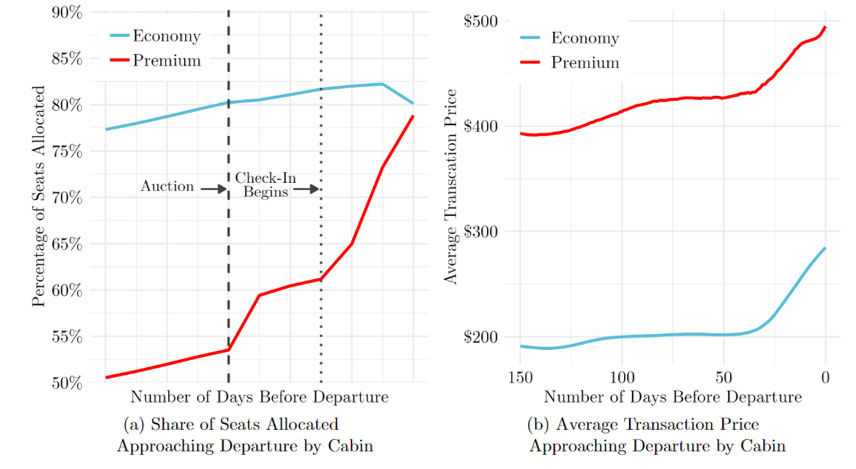Professor Partners With Airline to Evaluate Pricing Strategies
Garrett Scott awarded nearly $200,000 NSF grant to support research
OXFORD, Miss. – A University of Mississippi economics professor is working with a North American airline to study the effectiveness of pricing strategies and discrimination, a practice where airlines vary prices for the same product or service based on consumer attributes.
"Price discrimination is useful to firms like airlines because it allows them to charge higher prices to people who are willing to pay more, while also charging lower prices to people who otherwise might not buy at all," said Garrett Scott, assistant professor of economics and the study's principal investigator.

"Ultimately, price discrimination leads to higher profits for the airline and creates consumer surplus for those who get to pay less, but it can lead to lower consumer surplus for the people who have to pay more. It isn't clear ahead of time whether the two positives outweigh the one negative."
The National Science Foundation awarded Scott nearly $200,000 to continue an empirical analysis of airline industry pricing strategies over the next three years.
The Ole Miss professor, working with Jonathan Williams, professor of economics at University of North Carolina; Andrii Babii, associate professor of economics at UNC; and UNC doctoral candidate Alex Marsh, began research with the airline in 2019. They studied two main pricing strategies: personalized pricing via targeted discounts and auctions for upgraded services and amenities.
A portion of the airline's 2022-23 website traffic data includes detailed consumer information and results of multiple waves of random discounts offered to website visitors. The research team will use the nine-month data set to investigate the complex relationship between the decision to purchase, pricing, consumer characteristics and their website searches – key components of personalized pricing.
"If someone is repeatedly coming back to the website and they haven't bought yet, well, that might tell the airline that person is very interested and maybe I should increase the price," Scott said. "But it also might be a signal that, hey, just drop the price a little bit and get them on the plane. So, it's not clear exactly. That's kind of the goal of our research: who to target with the discount."

"When they (airlines) have information about us, that's awesome because we can get prices that are better suited for us, but the danger is that the firm can actually take all of the surplus from us and turn it into their profit."
The researchers are dissecting another airline data set from 2018 to 2020.
During that time, the airline offered multiple ways for customers to upgrade an economy class seat to premium seating, including fixed-price purchases at the gate and at check-in and submitting bids over a sliding range tool where winning bids were decided a few days before departure.
"One branch of what we're doing is looking at how should they sell these upgrades," Williams said.
"By that, it means, should I run auctions? Should I offer purchases at check-ins? If you're not careful in terms of how you implement the practice, it can actually render some of your other strategies less effective."
The material is based on work supported by the National Science Foundation award no. 2417693.
Top: Airline websites often use data collected from consumers to set fare prices. This can lead to price discrimination, which can increase profits for the company but carry ambiguous effects on consumer welfare. Graphic by Stefanie Goodwiller/University Marketing and Communications

The research team is using data on cabin capacities and consumer behavior to understand how the trade-offs faced by airlines evolve over time and affect pricing. Submitted graphic
By
Marvis Herring
Campus
Published
October 03, 2024
